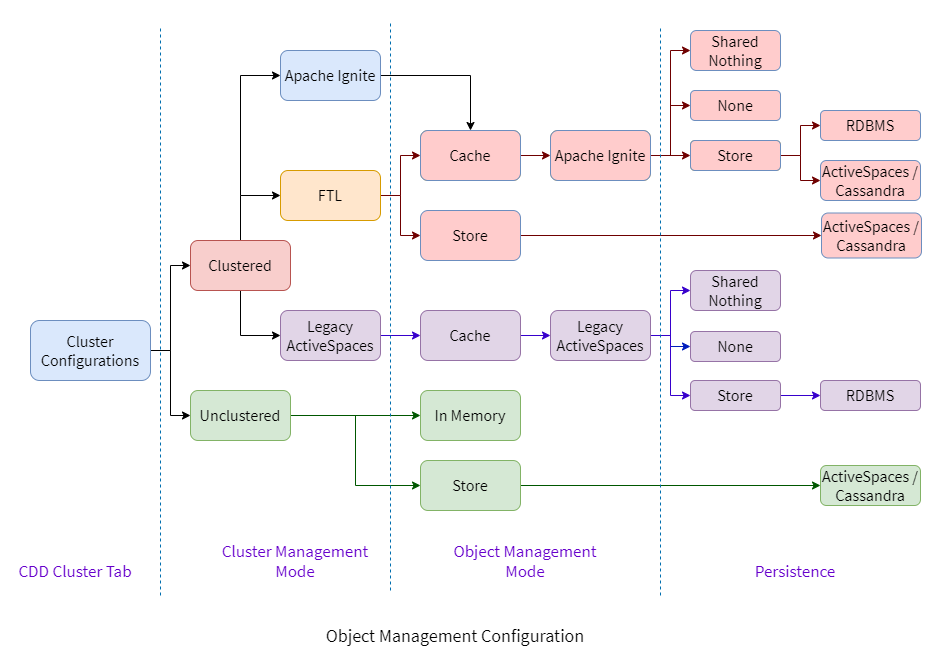Cluster Configurations For Your Project
Using the CDD file, you can configure the cluster provider, cache provider, store provider, and metrics store provider for your project. You can also choose to keep it in unclustered mode and configure In Memory object management.
In Memory Object Management
To use your project with In Memory object management (that is, without any cache), you can opt for Unclustered as the cluster management mode.
For detailed configurations, see Setting Up In Memory Object Management.
Cluster, Cache, and Store Configurations
The CDD provides hierarchical options to select different providers, which helps you to use different combination of these providers.
TIBCO BusinessEvents supports the following cluster, cache, and store providers out of the box.
- Cluster Provider
- Legacy ActiveSpaces
- TIBCO FTL
- Apache Ignite
- Cache Provider
- Legacy ActiveSpaces
- Apache Ignite
- Store Provider
- Apache Cassandra
- ActiveSpaces
Project Configuration Options
The following figure displays the options and combinations that you can configure for your project using the supported providers. The figure lists the options available under each parent option. For example, if you select Unclustered as the cluster type, then you can select the Object Management type as either Store or In Memory. Next, if you select Store as the Object Management type, you can select either Apache Cassandra or ActiveSpaces as the store provider.
Figure 2: Object Management Configuration Options

For further details, see the following topics:
Metrics Store
To view metrics for your TIBCO BusinessEvents applications, you can select from multiple metrics store providers. These metrics store configurations are independent of the selection of the cluster or cache configurations. Thus, you can get the application metrics for the In Memory application in the same way as you do for the Cache OM application.
The inference agent uses the Application Metrics configurations in the CDD to connect to the configured metrics store providers. The agent then publishes configured entity set updates to the metric store. In the CDD file, you can add entities (Concept and Events) for which you want to publish updates. You can also use rule functions to filter out the entities for which you do not want updates. You can then connect to this metrics store in your visualization software to create your own visualizations or dashboards based on the data published by your TIBCO BusinessEvents application.
TIBCO BusinessEvents supports the following metrics store and visualization software:
- Metrics Store: TIBCO LiveView, InfluxDB
- Visualization Software: TIBCO LiveView Web, Grafana
See the following topics for configurations required for these metrics providers: